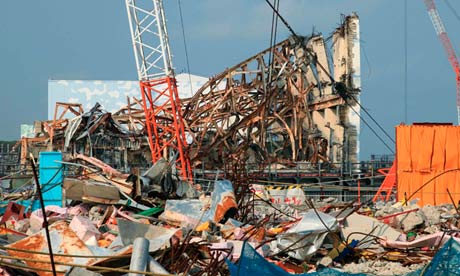Tepco, which previously insisted nothing could have protected plant, now says it failed to implement safety improvements
The company at the centre of Japan's worst-ever nuclear crisis has acknowledged for the first time it could have avoided the disaster that crippled the Fukushima Daiichi power plant last year.
In a dramatic reversal of its insistence that nothing could have protected the plant against the earthquake and tsunami that killed almost 20,000 people on 11 March 2011, Tokyo Electric Power (Tepco) said it had known safety improvements were needed before the disaster, but had failed to implement them.
"When looking back on the accident, the problem was that preparations were not made in advance," Tepco's internal reform taskforce, led by the firm's president, Naomi Hirose, said in a statement on Monday.
The company could have taken steps to prevent a catastrophic accident by adopting more extensive safety measures, the statement added.
Tepco's about-turn came after an independent panel of experts challenged the company's claim that it could not have foreseen the waves, which reached up to 14m high, that swept through the plant, knocking out its backup power supply and causing three of its six reactors to melt down.
In a damning report released in July, a parliament-appointed panel criticised years of "collusion" between Tepco, industry regulators and politicians, and described the disaster as "manmade". More
